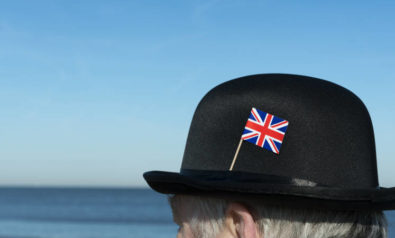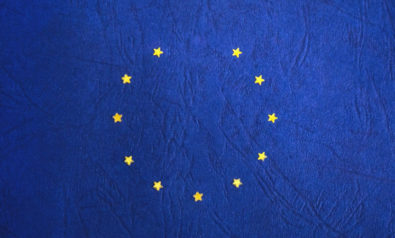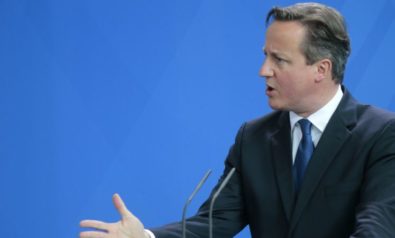On June 23, the United Kingdom will vote on its membership in the European Union.
Background
When British Prime Minister David Cameron promised a referendum on the United Kingdom’s membership in the European Union (EU) in 2013, the possibility of a Brexit was distant and unrealistic. At the time, the pledge appeared to be a political swatting at the Tory back bench and UK Independence Party (UKIP) buzz around immigration and euroskepticism—hedged against the Conservative Party winning a majority mandate in Parliament in 2015.
Today, the scales have turned. The refugee crisis, financial instability and the expansion of the EU to include new states like Bulgaria and Romania have soured attitudes toward Europe in Britain, as evidenced by UKIP’s gains in the general election. The Conservatives’ electoral success came as a surprise to everyone, including the party itself, and Cameron now finds himself in an awkward position of rallying the troops against what can become a disintegration of the European project, instigated by his very own political pandering to the right.
With the stage set for June 23, the Vote Leave and Britain Stronger in Europe campaigns are pouring fuel on the fire that is the EU referendum debate. One of the country’s leading newspapers, The Economist, concedes that the “arguments are hard to assess.” Indeed, after more than three decades of Britain’s membership in first the European Economic Community (EEC) and then the EU, separating the claims on both sides is not unlike being party to a couple’s quarrel.
The he-said-she-said nature of the campaign has been trying to claim all the key issues at stake: the economy, the bureaucracy, immigration and the nation’s darling—the National Health Service (NHS).
The Vote Leave campaign, backed by six of the 29 cabinet ministers, including Cameron’s personal friend and Justice Secretary Michael Gove, is claiming that Britain will be able to negotiate better trade deals with both Europe and the rest of the world if it is no longer bound by EU restrictions. The point it has been exploiting most avidly is the retaining of the £350 million that Britain pays Brussels every week—money that, the campaign is claiming, can be diverted to the NHS, education and research.
The Vote Remain camp counters this with threats of financial instability that would follow a Brexit, supported by a timely drop of the British pound to its lowest rate against the dollar since 2009 following then-London Mayor Boris Johnson’s announced backing for the Vote Leave side. Britain would have to renegotiate with 53 countries that have free-trade deals with the EU, and many are skeptical that any of them would greet Britain with open arms given its “cherry-picking” attitude. Given that UK exports to the EU comprise over 50% versus just under 10% from the EU to Britain, many on the Vote Remain side are loathe to risk breaking up the existing system in lieu of something unpredictable.
The question of immigration provides the bitter undertone to the otherwise predominantly economic slant of the campaign. Although the majority of Brits still perceive multiculturalism as a positive, there is a negative attitude toward the effects of immigration on the welfare and health care sectors, employment and education, among others. The inclination toward reduced net migration has been largely unchanged since 2008, but with the NHS and immigration topping the list of national concerns, it is easy to see how the presence of over 2 million EU nationals in Britain is causing tension.
Two papers cited by Channel 4’s fact-checking team show that Brits take out more money than they pay into the system when compared to “any kind of immigrant.” A recent report commissioned by the Centre for European Reform concluded that immigration helps Britain sustain its aging population, which is supported by HMRC figures that arrivals from EEA countries paid over £3 billion in income tax and national insurance in 2013-14, while taking out just over half a billion in benefits.
But the Vote Remain side’s claims that you are much more likely to be treated by an EU immigrant than find one in a hospital bed next to you fall on many deaf ears, with the Vote Leave camp resorting to Australia’s point system that was previously suggested—and largely ignored—by UKIP’s leader Nigel Farage in a call to protect British jobs and services.
Why Does Brexit Matter?
The European Union has a special place in history. It is the culmination of the process of peace and cooperation that evolved out of mankind’s most destructive war in an attempt to unite a continent along cultural, economic and political lines. What began as the European Coal and Steel Community (ECSC) in 1951 is today the world’s biggest single market, comprising 28 member states. To many, it is living proof of the democratic ethos of enlightened progress.
The United Kingdom applied to join in 1961, and it took over a decade to be admitted in 1973. The majority of the nine countries then comprising the EEC were wealthier than Britain, making its economic success an integral part of the EU story. As the world’s fifth largest economy, today’s Britain negotiates from a position of unprecedented power, with a decision to leave the union putting a strain on the very idea of the European Union that has not seen a break in the ranks since Greenland’s inauspicious departure in 1985.
There are endless questions for voters to consider. Would the UK benefit from new trade agreements with, say, China, over the EU? Would food and energy prices go up? Would EU research grants be replaced by government funding? By how much would immigration fall, and what would that mean for the economy? How would foreign investment and financial services be affected? Would the question of Scottish independence be reopened? What would happen to the 2 million Brits and 2 million EU citizens living across the channel from each other? Would saving the $12 billion that Britain pays into the EU budget outweigh the economic benefits of being part of the EU market? Where would that money go? Would Britain be safer behind closed borders? The list goes on.
To some, a Brexit would be a long-overdue opportunity for the UK to retake control over its legislative and economic decisions. To others, it signifies a relinquishing of control in a system in which it will nevertheless have to take part, but now as a voiceless outsider. Regardless of the outcome, in this time of crisis, the referendum is laying bare the dark side of the crisis of European unity and identity.
The views expressed in this article are the author’s own and do not necessarily reflect Fair Observer’s editorial policy.
Photo Credit: Shockfactor.de / Shutterstock.com
 We bring you perspectives from around the world. Help us to inform and educate. Your donation is tax-deductible. Join over 400 people to become a donor or you could choose to be a sponsor.
We bring you perspectives from around the world. Help us to inform and educate. Your donation is tax-deductible. Join over 400 people to become a donor or you could choose to be a sponsor.
For more than 10 years, Fair Observer has been free, fair and independent. No billionaire owns us, no advertisers control us. We are a reader-supported nonprofit. Unlike many other publications, we keep our content free for readers regardless of where they live or whether they can afford to pay. We have no paywalls and no ads.
In the post-truth era of fake news, echo chambers and filter bubbles, we publish a plurality of perspectives from around the world. Anyone can publish with us, but everyone goes through a rigorous editorial process. So, you get fact-checked, well-reasoned content instead of noise.
We publish 2,500+ voices from 90+ countries. We also conduct education and training programs on subjects ranging from digital media and journalism to writing and critical thinking. This doesn’t come cheap. Servers, editors, trainers and web developers cost money.
Please consider supporting us on a regular basis as a recurring donor or a sustaining member.
Support Fair Observer
We rely on your support for our independence, diversity and quality.
Will you support FO’s journalism?
We rely on your support for our independence, diversity and quality.

































